Delve into the intricacies of Positive Words Research’s research process as we unveil our methodology. Learn how we gather insights, conduct studies, and uncover valuable data to provide you with the most accurate and meaningful information. Explore the behind-the-scenes of our research efforts to understand how we deliver positivity and innovation through our research practices. At Positive Words Research, we believe in the power of words to shape thoughts, influence actions, and inspire positive change. Our mission is to harness the potential of language to spread positivity, improve well-being, and drive innovation. One of the key pillars of our work is our robust research process, which allows us to uncover meaningful insights, uncover trends, and contribute to a brighter, more informed world.
In this article, we invite you to join us on a journey of exploration as we take you behind the scenes, offering an in-depth look at our research methodology. You’ll gain valuable insights into how we conduct our studies, gather data, and derive actionable conclusions. Whether you’re a fellow researcher, a curious individual, or someone looking to understand how we create a positive impact through words, this insight into our research process will be both informative and enlightening. Join us as we explore the inner workings of Positive Words Research and discover how we transform words into tools for positivity and change. Let’s begin our exploration of “Exploring Our Research Process” together.
Questions and answers
I have been asked a lot of times about how research is done at Positive Words Research. I tell people that I research positive words and that I call myself a Positive Words Researcher and they tell me:” Ok, ok, this is great Elena but what does it mean, what do you do, how this research is done, can you reference the sources of your positive words and how do you know for sure what words are positive and what words are negative?”
I am receiving messages such as: “I am on a research team that is studying …… We stumbled across your website and it has been an excellent resource. We were wondering where you got your list of words from and if you had empirical evidence that we could reference in our study.” I usually reply something like this: “Thank you for contacting me. I am fully willing to help you with everything I can. Please give me more details about how can I specifically contribute to your project. Related to “We were wondering where you got your list of words from and if you had empirical evidence that we could reference in our study. ” you can reference exactly Positive Words Research, put a link to the list of positive words which is https://positivewordsresearch.com/list-of-positive-words and my name Calin Elena Daniela as the researcher of positive words.
Why should you put Positive Words Research, the link, and my name as a reference? I have been creating this list since 2013 (in time I have added one by one the positive words after I have personally researched them and approved them as positive; the words, I am extracting from my readings: normal books, the Bible, spiritual articles, blogs, anything I read). For this reason, the list of positive words from Positive Words Research is unique in the world. And it will be unique because I have more than 1500 words and phrases that I will further add to the list, but the words are still in the process of approving them as positive or not.”
Then I get replies that say something like this: “Your website has a lot of useful words that my team could definitely use, and we always site whoever we got data from. In regard to our research, we have to have empirical evidence that backs up our statements, and because of this, I am interested in what references you have used since creating this. Creating a website like this could have not been easy, and you must have done a lot of preparation research to get the information needed. Knowing a little more about your process I was wondering how you have defined positive words. and how do you know that these words fit these definitions? How did you do your research, to give you the knowledge of how emotion is felt from these words? and how exactly do you individually research these words? As stated, we will always cite your work because you have a lot of useful information on your web page. We just need some form of studied evidence to back it up in order for it to fit our research.”
Ok! Therefore, today I decided to write a post to give more details about how the research of positive words is actually done at Positive Words Research. I will include some pictures to show what I do in reality. These pictures show how I do the research practically. It is very simple actually. I read a lot of text day by day and I just extract words that feel positive to me. For example, I read some text on my iPhone and while I read, I spot some possible positive words like the ones highlighted: earnestness, openness, and heartfelt. How can I do this?
- I make my judgment, based on the context of the text, based on the sentences where I initially find that word.
- It is my talent, a gift that I have. My brain can spot these words. It is my natural talent and also my ability that I have been training myself to have since 2013 (2013 I have created Positive Words Research). Since 2013 my brain has read the text and spots these possible positive words. My ability to spot positive words is high, also because the already positive words that I found and added to the List of Positive Words are already in my memory. I actually know from my memory, if I have added the word to the list or not, without checking the list. Checking the list to see if it has the word or not is something that I do later. But, in more than 90% of the cases, I know if it is a new word or not.
- It is a spiritual and energetic talent that I have. I feel the vibration of positive words as being positive. My brain is wired to feel the vibration of words. Highly intuitive people, energetic healers, and people who do energy clearing have the ability to “feel” that truth is light and lies are heavy. I do the same with words. Some words I feel them light and blissful and these ones I consider positive words, and some words are heavy or very disturbing, and these ones I consider negative words. And some words are just neutral (these words I consider just for the purpose of filling the void, the gap, for the brain to be able to make judgments). Only positive words are connected with positive emotions and feelings. I consider that positive words are full of truth. The truth is light, therefore, positive words are light, which means with less earthly/material information but with more spiritual/healing/enlightened energy. Versus negative words which I consider full of “lies” (what is a lie? lots of stories to cover a simple truth) and also full of lots of heavy stories from history. These things give the negative words more information (negative words are heavier because are full of a lot of information, much more information than positive words). But this more information contained by the negative words is not relevant because it just covers the truth.
Therefore, I spot the words from the text I am reading on my mobile, I highlighted them and print screen the screen (you can do this with an iPhone) to save them as pictures on my phone. But this is not the only way I do it, with my phone. For example: If I read a paper book I underline the words. If I read an online article with a lot of positive words I send the article to my email inbox with the subject “to research this text for positive words” and when I have time I re-read the article and extract the positive words.
Another day, when I have time, I look on my phone, look through the pictures and extract the words to manually add the words to a list in my notebook. I also do a search of that word on The Free Dictionary, Wikipedia, and Google. I research the word in google to read some articles that contain that word. Some of the words that I find are not in The Free Dictionary or Wikipedia and some are not even on Google. How can a word not exist in Google? Because if I read the text in a paper book and no one has used that word in an article, then the word or phrase does not exist in Google. Or people will insert a positive word in a motivational text in a picture, and Google cannot read that text (but I can, because I see it with my eyes).
You can see that the words are added in different time periods because are written with different pens in different colors. After I complete two pages of positive words or phrases, I add these words in excel. When I add the words in excel, I am again searching the words on the internet to better understand them (I read articles or the explanation in different dictionaries).
When I have time (this might be in a couple of weeks because researching positive words is my passion and I have a day job) I add the words to the online list of positive words.
Then something super amazing happens: the people all around the world are commenting online on the list/social networks or sending me messages through my newsletter/website/social platforms. Some of the social platforms of Positive Words Research are Facebook, Twitter, Tumblr. The people are commenting on the positive words, telling me that, they do not consider a word being positive, that is negative or more negative than positive. For example, a person said to me that the word: “blessing” is not positive, is more negative. Based on their messages I conclude if I delete a word from the online list or I keep it. For example, I kept the word “blessing” in the list. Also, people are sending me words or phrases that they think are positive and that I should add them to the list. Some of the words are not on the list or some of them are already on the list.
My observations and conclusions as a researcher are based on my own training and experience. I will mention some well-known people from the foundation of my training and experience:
PSYCHOLOGY
I have studied the work of Albert Ellis who invented REBT therapy (rational emotional behavior thereby). REBT is more evolved than NLP (neuro-linguistic programming). After studying a lot of Albert Ellis books especially “Guide to a rational living” I understood the significance that internal dialogue (words that we use when we think) has on our mental health and happiness level. This is one of the main reasons why I do my work: to make a list of positive words and put it freely at the disposal of people so that they can learn and choose positive words to think better thought (for their mental health and happiness). All these positive words help a person to have a healthy mind.
SCIENCE/QUANTUM PHYSICS
I have studied the work of Nassim Haramein that coordinates The Resonance Project.
SPIRITUALITY/ENERGY CLEARING/ENERGY HEALING
I have studied the works of Christie Marie Sheldon. For example, from her, I have included the positive phrase “pure love and light” into the list of positive words. I have studied the work of Vishen Lakhiani that created Mindvalley.
During my research, I have discovered a lot of spiritual texts and noticed that spiritual people use an abundance of positive words in their texts. Therefore, I have extracted the positive words and phrases from their text and included in my list, for normal people to look through the list, wonder about the meaning of the word, look for it and learn how to be happier. For example, the word “loving-kindness” or “kindness” or even “happiness” when you search it online you find a lot of resources that you can read and learn how to improve your well-being. Including “well-being” is a positive word.
LISTS OF POSITIVE WORDS/SENTIMENT ANALYSIS
I have studied all the list of positive words from the internet such as:
- A to Z of Positive Words – List compiled by Paul Foreman from Mind Map Inspiration
- The list of positive words from The Benefits of Positive Thinking
- The list of positive opinion words (or list of sentiment words) from GitHub
At present, the research of positive words is in progress and a lot of things need to be done. I have a lot of things to do: to decide more than 1500 words that are positive or not, to add words to the online list, to translate the list of positive words in other languages (to translate the new positive words for the lists that I already translated), to research more text and extract more positive words, to reply to many comments and emails that I receive.
For example, I want to research the religious texts from my country Romania to complete the list of positive words in Romanian (in Romanian the list of positive words is called “Lista de cuvinte pozitive”) because in my country I discovered that something different is happening, than in other countries: most of the highly spiritual (highly positive words) are found in the religious text (like scriptures, psalms, or text written by priests, saints that profoundly believe in God). So I need to go through all this text and extract the positive words or phrases. Which I will do, in my life, before I reach 100 years old.
I am working to create a better version of the online application that I call Positive Words Researcher. Positive Words Researcher is a free online application that finds positive words in a text. I want to make the application on categories (usual/normal positive words and highly spiritual positive words) and to also make it in more languages.
For everyone that wants to use my research on positive words for a different project please contact me and tell me about your project and if you need to reference your work please use this:
Based on research done by Calin Elena Daniela at Positive Words Research, based on the list of positive words found at https://positivewordsresearch.com/list-of-positive-words
I understand that is something new for people to reference a link, but this is how things are done nowadays. We do our research and document them not on paper anymore, but on the internet. Thank you for referencing my work in your project. Researching positive words is my passion and I will do these many years from now.
Have a blissful day full of magic awesomeness and lots of happiness,
Calin Elena Daniela, the founder of Positive Words Research
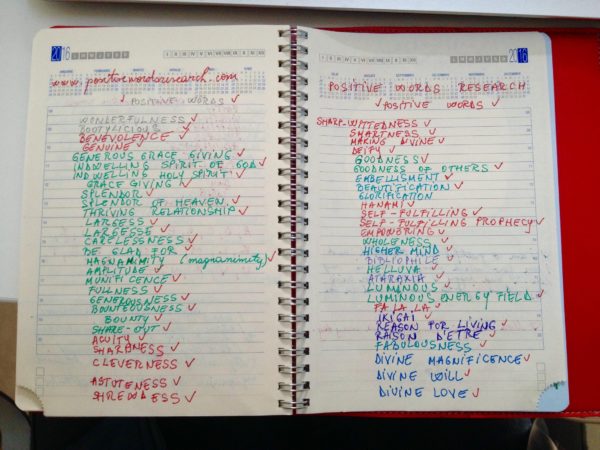
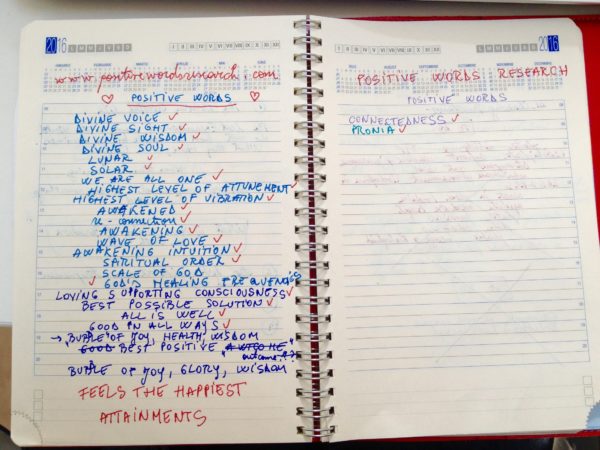
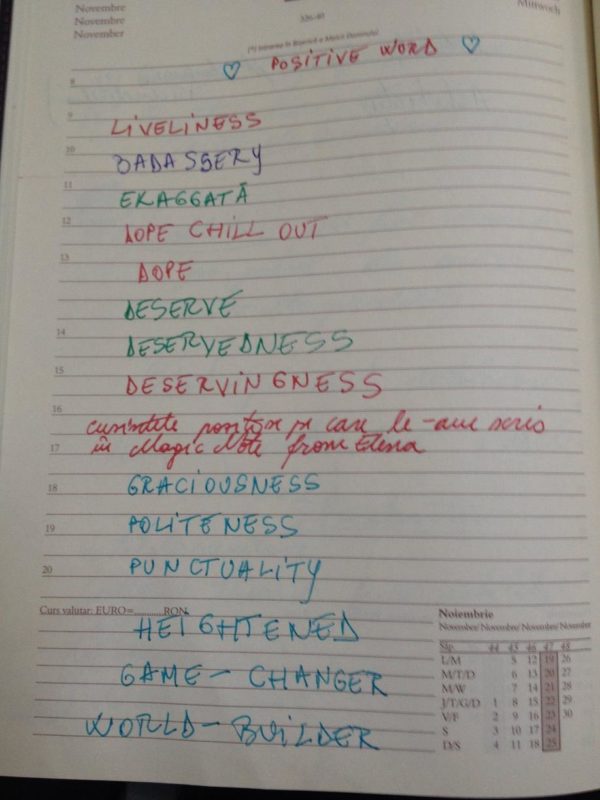
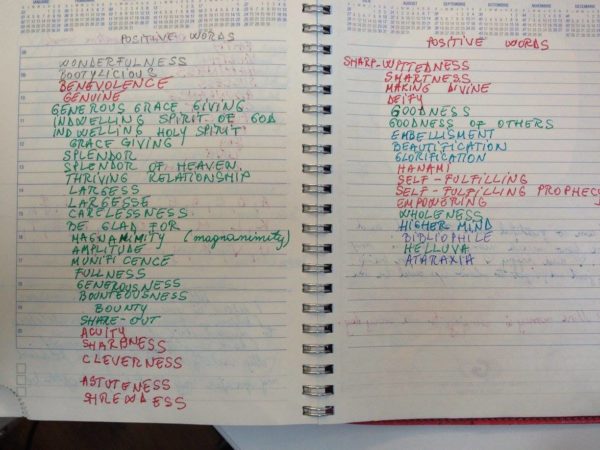
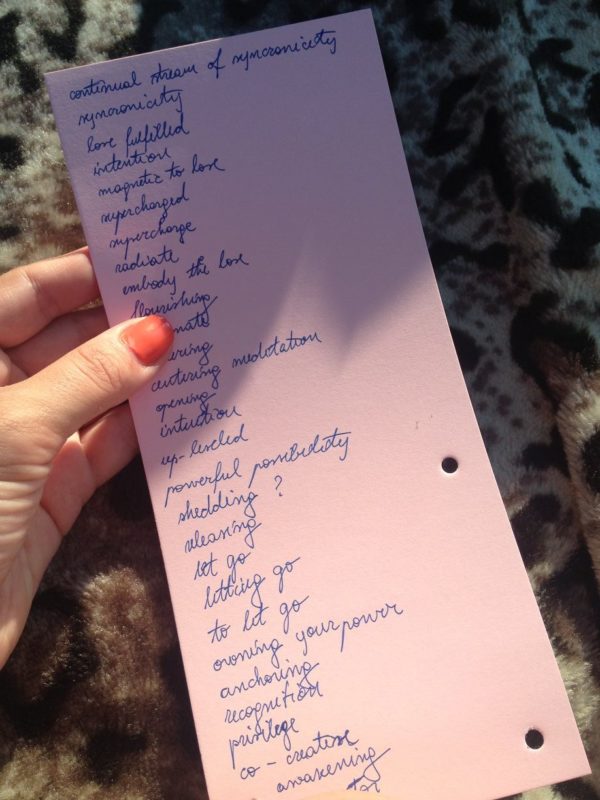
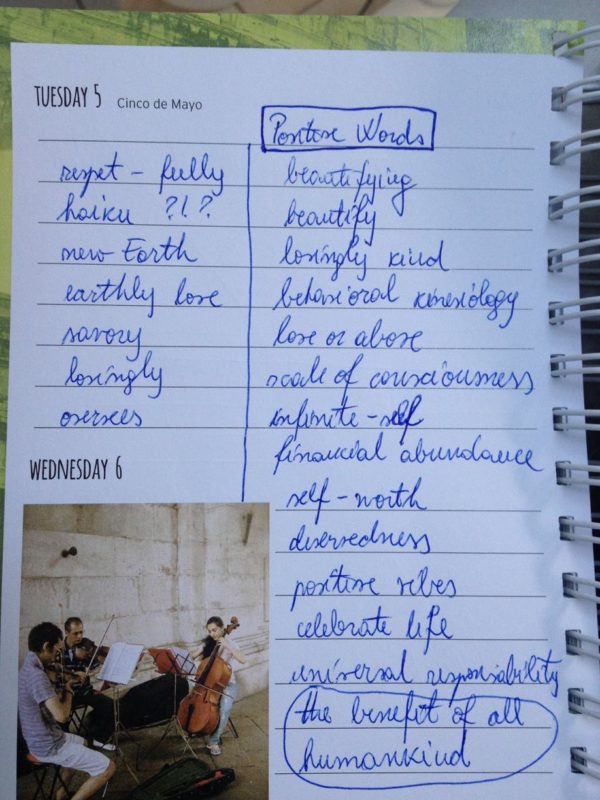
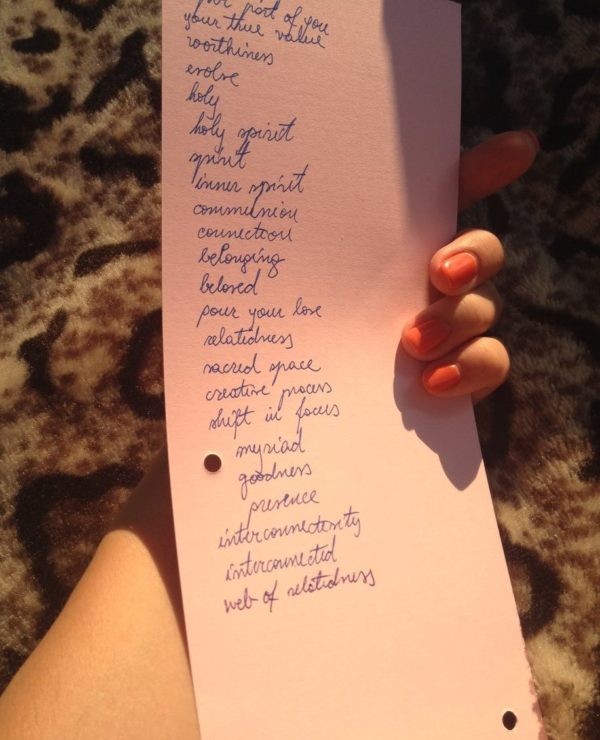
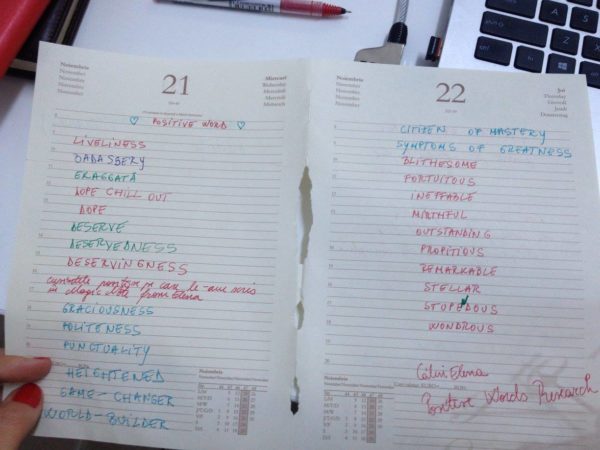
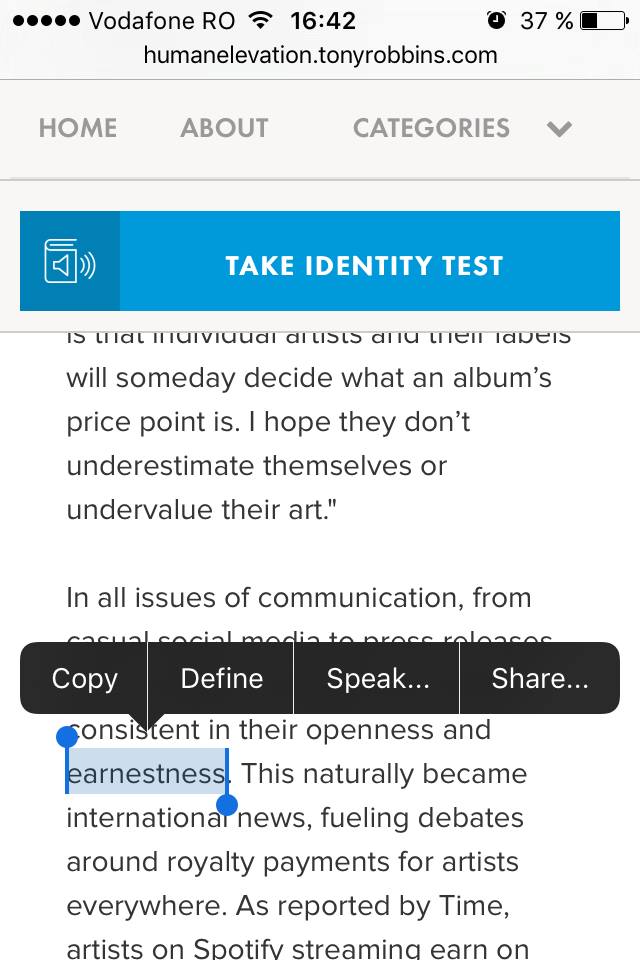
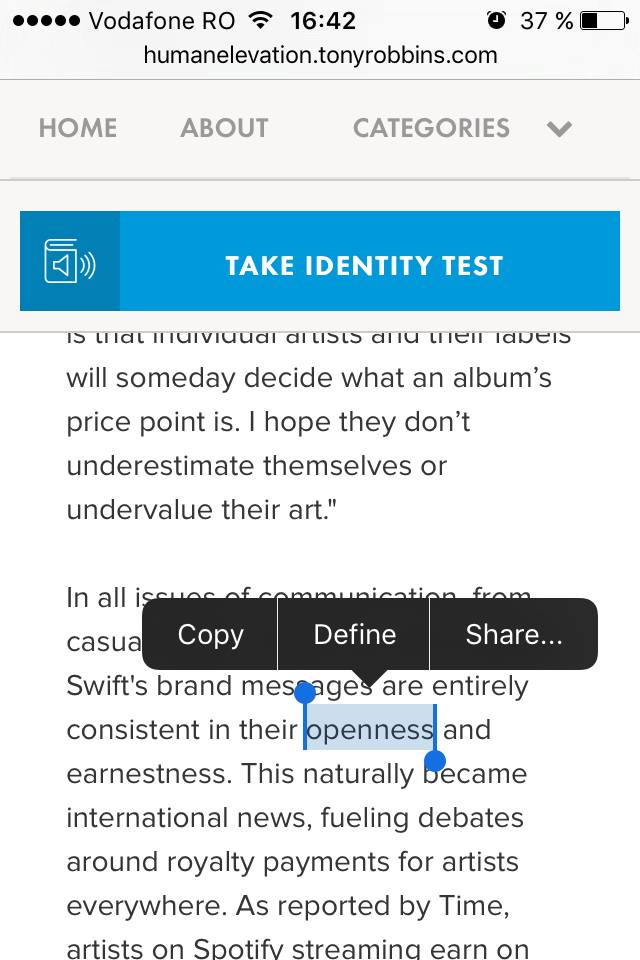
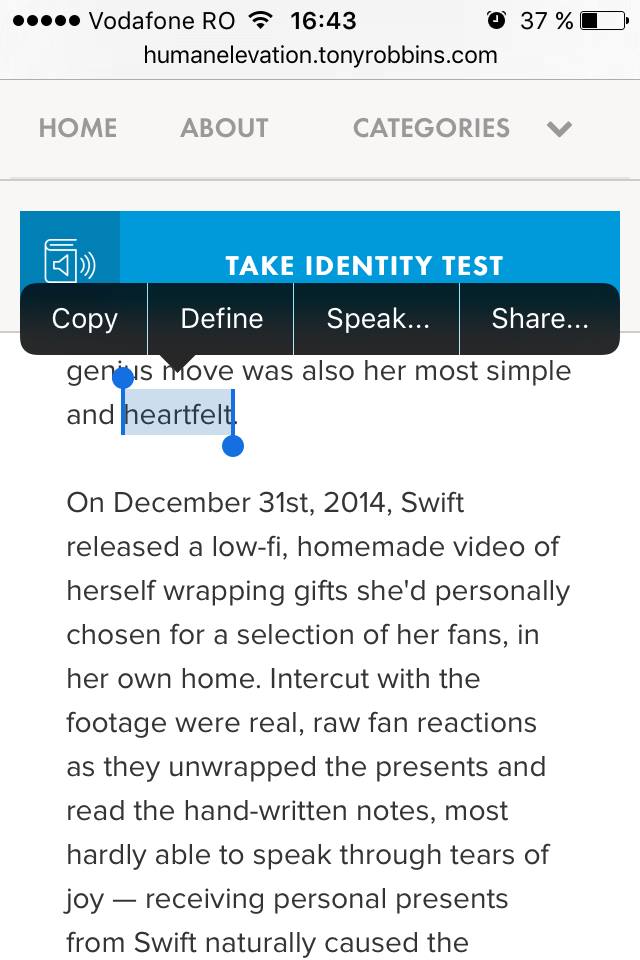
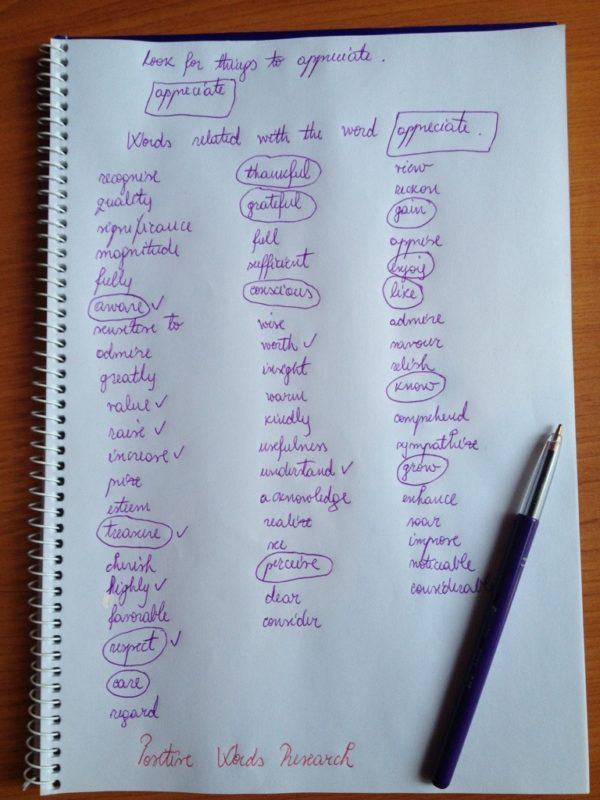

1 Comment
Ioana G. · March 26, 2016 at 6:11 AM
Your list of words have so much impact. As a poet and writer, I can tell you that positive words really do affect our state of being and they have an impact on our actions. You are very talented for being able to pick up the energy of words, Elena! This is wonderful. Thank you for explaining the behind-the-scenes of Positive Words Research. 🙂 More people should know about this resource.
Comments are closed.